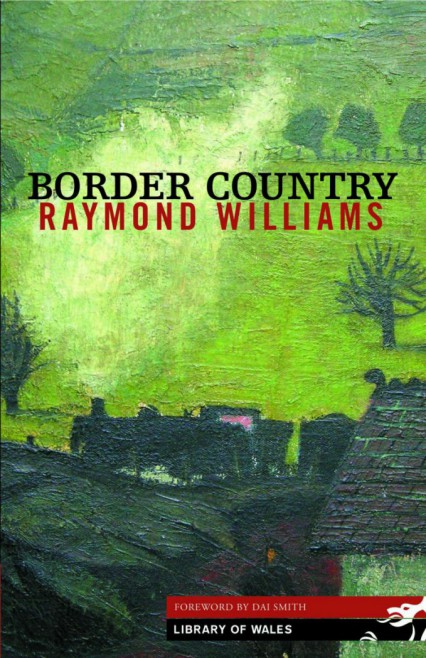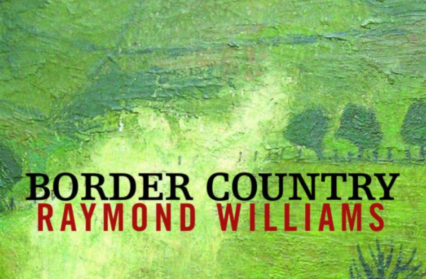Jon Gowere revisits Raymond Williams’ novel Border Country, one of, if not the most celebrated pieces of Welsh writing in English.
Re-reading Raymond Williams’ Border Country for the third time I was conscious of how the opinions of others, of persuasive cultural arbiters such as Williams’ biographer Dai Smith have been quietly at work on me, insisting how good this novel is, working their steady polemic.
Now I remember thinking the novel was good when I first read it, sometime after attending Williams’ course about drama at university, but subsequently I’ve read essays, reviews and books expressing very high regard for this tale of a son, Matthew, returning to his Black Mountain home of Glynmawr where his father, Harry, is gravely ill. I’ve been wary of my opinions being skewed, of overestimating the value of Williams’ work. Being told that something is a classic over and over again doesn’t simply make it so.
But now that I’ve finished it (again) I not only agree with the Williams’ enthusiasts, I’d go a little further than some of them and suggest that this is the novel, the pinnacle of Welsh writing in English, or what used to be called Anglo-Welsh writing. It is sublime stuff, with luminous prose that simultaneously has the exactitude of Swiss chronometry and the spiritual uplift of Sufi singing.

by Raymond Williams
Williams hymns the landscape into being, patch-working its shape, quilting its textures and doing so in a language that has the very rhythm and lilt of gorse clad hill and verdant valley. One is spoilt for choice for examples: there is a gorgeous glut of exceptionally fine writing about landscape, as consistently good as anything penned by Barry Lopez, Jim Perrin or Annie Proulx. Yes, that good. Here’s a sample, taken at random:
Walking the road in the October evening, they felt on their faces their own country: the huddled farmhouses with their dirty yards; the dogs under the weed-growing walls; the cattle-marked crossing from the sloping field under the orchard: the long fields, in the line of the valley, where the cattle pastured; the turned red earth of the small, thickly-hedged ploughland; the brooks, alder-lined, curving and meeting; the bracken-heaped tussocky fields up the mountain, where the sheep were scattered under the wood-shaded barns; the occasional white wall, direct towards the sun, standing out where its windows caught the light across the valley; the high black line of the mountains and the ring of the sheep-wall.
Here is mimetic writing showing not only what you see if you walk the same route, but showing you what’s there at the same pace as if you were noting the dogs, then the cattle, the alders and so on as you traversed the hill on foot. It is writing that follows the contours of the climb, hugs the texture of the land like a Gore-tex sole. It is alive with lovely detail, although there is nothing showy, no prose pyrotechnics. Here are sentences to match the bright water of the high trout brooks, pellucid and refractive. And reflective too, because this is a landscape both remembered and presently observed in the flow of prose, undulating and green, punctuated by sudden posies of hawthorn blossom.
But there is also plentiful evidence of that Swiss precision-engineered prose. We have agricultural words such as tedder or gardening terms such as dibbing. and even on the level of individual words or phrases it is hard to find many examples of Williams getting either nuance or meaning wrong. And I tried to find them. Really tried.
In the area depicted in Border Country the country folk drink wheat wine. But Williams manages to make it taste most often like Moët, for this book is a sparkling celebration of both writerly intelligence and an unashamed love of land. Try it and you’ll see. Sip the vintage wheat and be delighted.
Jon Gower is an avid contributor to Wales Arts Review and is continuing his journey through the Library of Wales.












